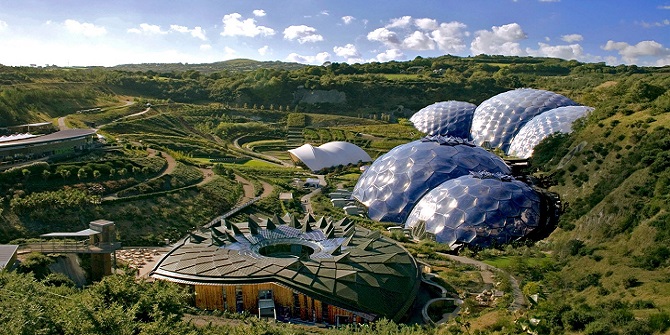Each year at LSE Generate we see an increasing number of funding applications focused on the problem of climate change. When climate change is a distant concept and doesn’t ‘appear’ to be having a direct impact on your life, it’s relatively easy to ignore it. For many LSE students, however, the devastating changes in the environment have had a transformative effect on their lives and those of their family and friends and so some of you have chosen to study and specialise in the area with the hope of educating future generations on the importance of the subject. The Grantham Institute here on campus leads the way in this type of policy-relevent research at LSE. Some have focused on taking this knowledge and applying it to real life situations through innovative invention and in recent years we’ve seen students winning funding for anything from waste management projects in Colombia to solar lamps lighting up the Indian slums.
Sector specific accelerators
While governments and large corporates scramble around and try to tackle the pressing issues (some more successful and more engaged than others) there appears to be, not just at LSE but around the globe, a new generation of enthused entrepreneurs who are approaching the problem head on and coming up with way to solve it. And the great news is there appears to be the support network available too, maximizing the chances of business success and the hope of ensuring the places we inhabit are the most sustainable they can possibly be.
Here in the UK, we have seen the emergence of sector specific accelerators focused on clean tech inventions; the Climate-Kic accelerator programe in Birmingham and Bethnal Green Ventures are just two of these initiatives. Other accelerators such as Wayra also nurture environmental and clean tech ideas as part of their portfolio. Then, there are the VCs that also look to invest in business that have a clear environmental mission; The Eco machines accelerator is a fund that supports early stage industrial clean tech inventions, and our very own LSE alumni Alex Pitt and Henry Wiggan created the impressive Mustard Seed fund which, as their motto goes, enables, ‘enterprise for society’.
Meet environmental entrepreneur Sir Tim Smit!
One of those most influential and present UK entrepreneurs who has been tackling the problem of climate change for the last three decades is the seasoned social entrepreneur Sir Tim Smit. Sir Tim is founder of the award winning Eden Project, a regenerated clay pit that he and his team transformed into the world’s largest rainforest in 1998. It’s an area the equivalent size of 35 football pitches that aims to connect human beings with the living world and to show people we are a part of nature rather apart from nature.
If you want to look at what they’ve achieved check out Sir Tim’s intro on YouTube. And if that gets you excited, then there’s some even better news – on Wednesday 18 January here at LSE, Sir Tim Smit himself will talk about being an entrepreneur in 2017. There are still a few places left if you would like to book a spot – and there’s a free lunch too!
In case you’re unable to make the lunch you might want to check out our other events this term which focus on social enterprise and the positive impact we can create and achieve through innovation and entrepreneurial thinking. Why not make that your goal for 2017?






1 Comments